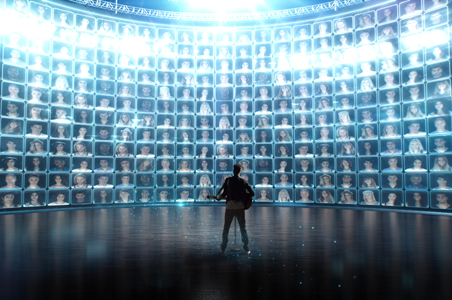 That a network would try a new singing competition isn’t news.
That a network would try a new singing competition isn’t news.
But ABC’s summer “Rising Star” will differ from “American Idol,” “The Voice” or “The X Factor” by fully employing instant voting from viewers. Instant voting via Twitter has only been used sporadically — as a tie-breaker between two low vote-getters on “The Voice” for example — largely because the country’s multiple time zones means that only East and Central viewers can participate.
“Rising Star” will try to counter that by allowing those in the West to vote during an earlier, online feed. But the payoff– voters on a show app will get to see their faces on a big curtain as their vote counts — is meant to be a big incentive.
And the big gimmick is that singers facing the board must reach a certain threshhold of approval — 70 percent — so that the whole board rises triumphantly, allowing the singer to now face the live audience. The use of mechanics and reveals is part of what made “The Voice” a big hit and the “Rising Star” format has been a proven sensation in Israel. But that is also a place with just one time zone.
ABC entertainment president Paul Lee spent a considerable time of his executive session at the TV Critics Association winer press tour touting the show as “the next generation of reality shows.”
It has so taken off in Israel, he says, “literally 30 percent of the audience have the very simple app and are voting live for it.”
As each singer takes the stage, he says, “you can see this live voting going on, and the numbers are going up. You’ve got to hit 70 in order for that huge wall of voters to rise. And one of the reasons people are voting is they can see their faces on the wall. The wall rises, and there are thousands of people behind it. So she gets to 62, 65, 66, 66, and you can see in her eyes, and you can tell she’s not going to make 70, and then as she becomes to realize it, it’s really visceral. She doesn’t get the 70. The wall doesn’t lift, you know, and then the host takes her out. It’s almost like a modern Colosseum. I mean, people are literally voting up or down.”
“We think it will be a star maker over here,” Lee says. “We’re going to use the NBA to launch it in June and we’re very excited about it.”
He said they’re still determining how to handle the time zone problem. “But the notion I think we’re going to have is on West Coast, you’re going to see a live feed of the singer, and you’re going to be able to vote on it, but you’re not going to see the whole show. You’re not going to be whether they go through or they don’t go through.”
That will make sure West Coasters will still have to watch the live show to see what happens. Alternately, “we may be able to have a couple of the singers be chosen by the West Coast as we go towards the end. So, for instance, if you have eight going through, two of those slots could remain for central time, mountain time, and West Coast time.”
Asked why he’d introduce another singing competition at a time when the ratings for other such shows are going down, Lee says the difference is that “this changes the rules.
“In Israel, it clearly changed the rules, because it came out gangbusters,” he says, calling the show “a combination of a massive talent show and, to some degree, ‘The Gong Show.’ ”
Voting live changes the rules because of the “very, very simple apps” built with technology developed by ex-Mossad, he says. “Maybe I shouldn’t be revealing this.”
No judges or host have been announced for “Rising Star,” expected to begin its run in June.